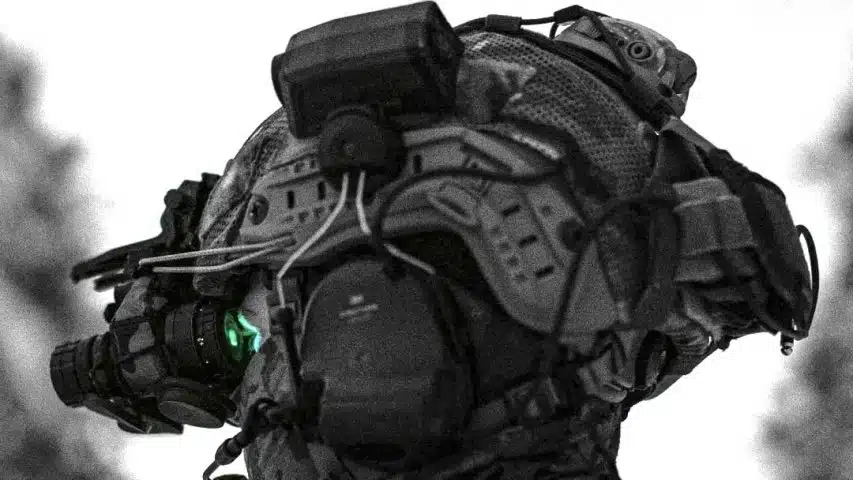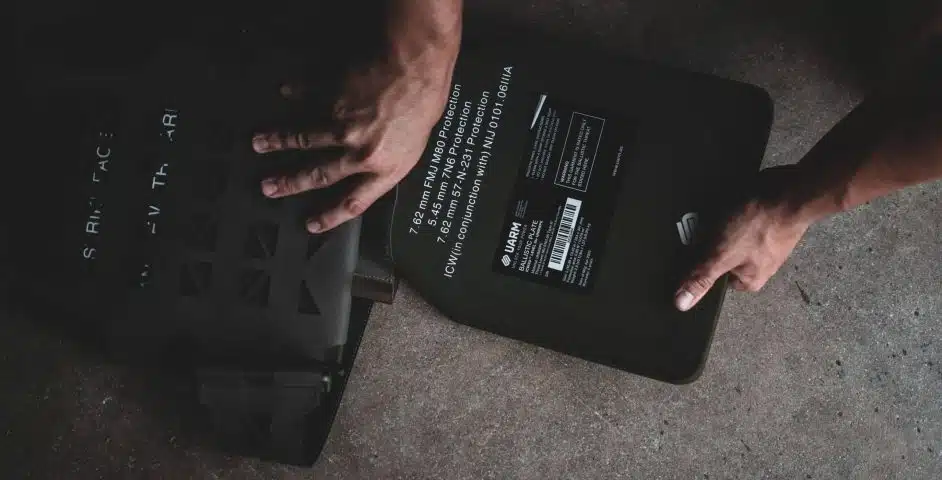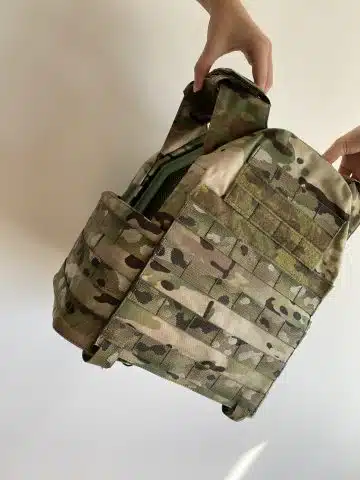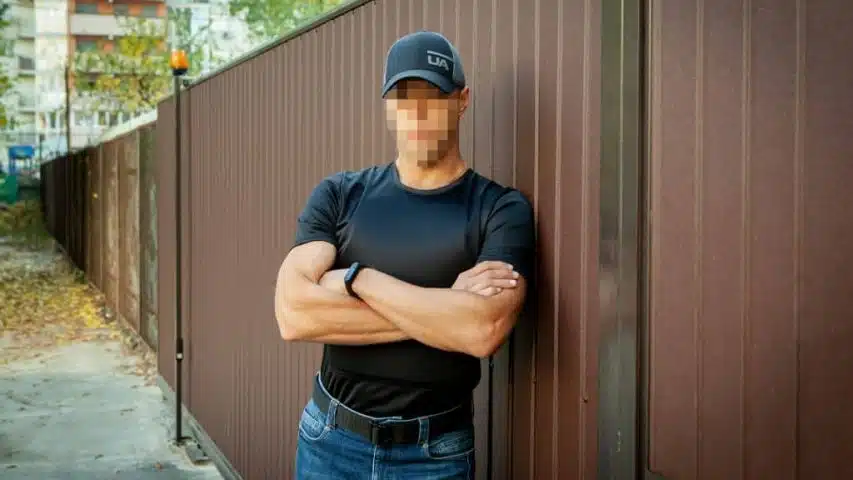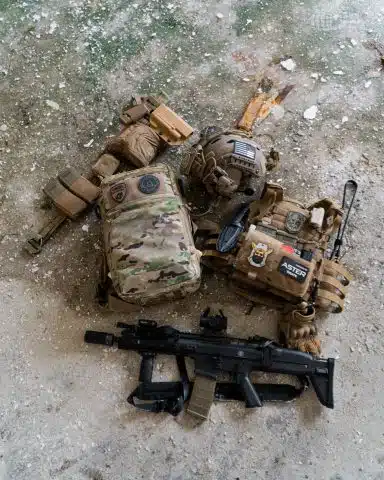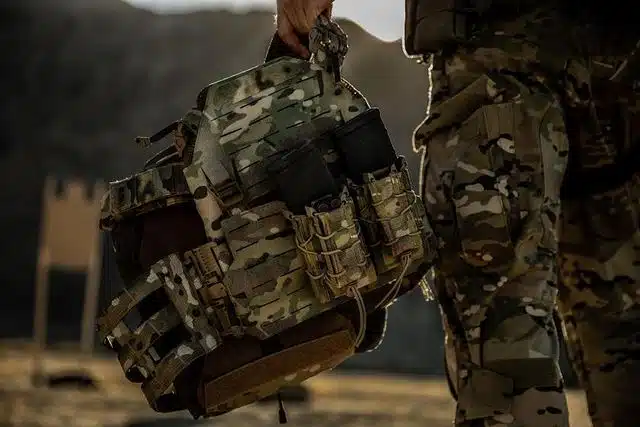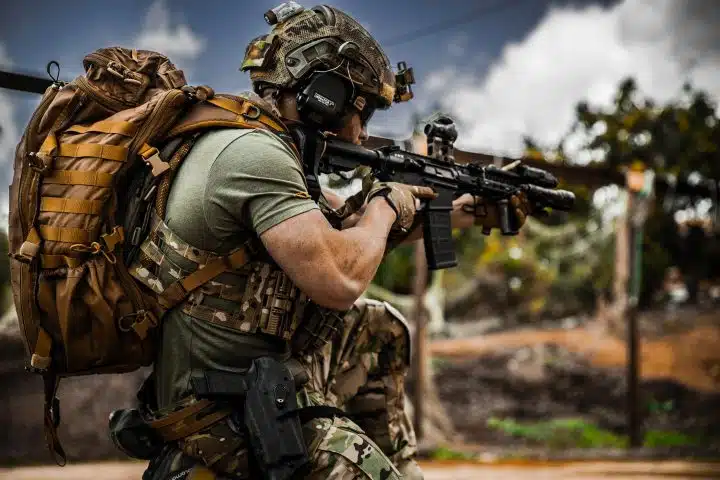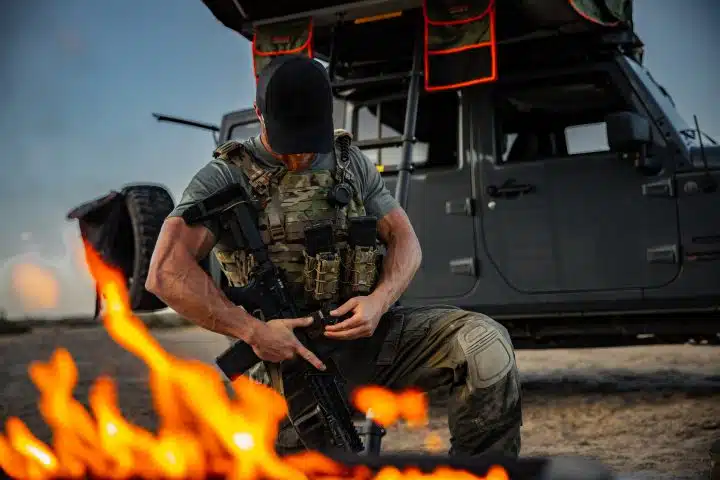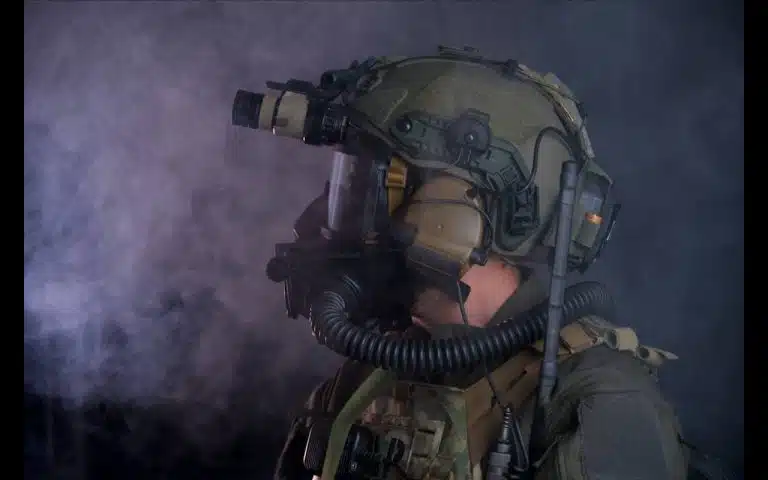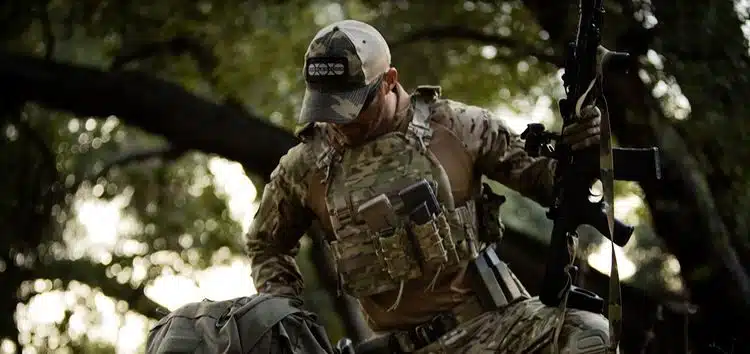While it is obvious that a good plate carrier is the one that will fit perfectly to your body and the mission at hand, we need to know what these things mean. The biggest rookie mistake is thinking that you can’t go overboard and thus anchor yourself with too much gear.
Ideally, you want to answer three questions when finding good armor:
- Where? (Will you be using it, and against whom).
- Who? (Will be carrying the armor and their body type).
- What? (Will you be doing in the field).
The ‘’Why’’ is the only question you never ask, as that is for the commander’s pay grade.
But for the rest, if you want your plate carrier to protect you in the best way possible without preventing you to function normally, you will need to answer all of these questions correctly.
If you know where you will use the armor and who might be endangering you, you will know which level of protection you need. This will also answer if you need additional coverage or is it better to stay mobile.
The third point is all about what gear you can attach to the armor and what it will do. Every item you return home unused should be considered a mistake and dead weight.
Finally, humans come in all shapes and sizes even when they are at the peak of their combat ability, and we rarely are. Adapting your place carrier and armor to your physique is the only way to have a useful product that will serve you in combat.
Understanding Your Situation
This is not as hard as it seems and with modular plate carriers, you can have the same base for different solutions. Battlefield, combat and conflict situations can be categorized and you will only need a couple of variants to be prepared.
There are situations where you will need to have a bit more armor than it might be comfortable. If there is not enough cover, or if you can be ambushed by grenades, traps, or other IEDs, you will need to cover every vital organ that keeps you going.
Explosives are a much greater killer on the battlefield as you don’t need to see a human to be under threat. A trap can be made and left for a long time before it is activated.
This is also the case in close quarters where you will need wider plate coverage if you are bottlenecked in narrow corridors fighting rifle fire.
But, if you aim to finish your mission quickly and decisively; you will need to stay mobile and maneuverable. Clearing the enemy before they have the time to react is the best way to prevent any harm from befalling you or your comrades.
Low-Cover High-Explosive Scenario
Such scenarios are fairly easy to notice. Most anti-narcotics and SWAT missions entail engagements that include going into enemy territory with limited information and a significant risk of traps.
Also, urban combat in enemy territory where someone can hide in unknown locations and throw explosives is quite regular for modern combat and is included in this list. And the only way to ensure persisting combat ability here is to have all your vitals covered.
Thankfully, a good plate carrier will always be modular and capable of attaching additional armor to increase coverage. This should include a good low-cut helmet and protective boots, as well as armor for the neck, shoulders, groins, and thighs.
Close Quarters Combat
While it is generally hard for humans to hit other humans with rifles, this psychological effect is nullified when there is a shootout in close quarters and narrow corridors. This is how most law enforcement officers are injured on the job.
Thankfully, even buckshot doesn’t require hard armor plating to be stopped, and that is the most common type of ammo in this situation. But, the blast will go everywhere.
Because of this, in CQC you will need to have extensive coverage for all team members. Ideally, there should be a tactical shield for anyone opening and entering new rooms or turning in corridors.
For others, protecting the arms, shoulders, as well as stomach, and groin will be needed. For this reason, a good tactical vest will need to be able to attach auxiliary armor to itself.
Crowd Control
Crowd control seems easy at first glance as most crowds are not inherently violent and are usually not equipped for combat. Regretfully, there are occasions when this is not the case.
In some crowds, agitators will incite violence, usually directly against those who are tasked to protect the peace. Here is where good armor becomes necessary because you are unable to neutralize the attacker and need to subdue them.
Shoulder, clavicle, and neck armor in these situations is mandatory, as well as good head protection. This will completely protect you from rocks, bottles, and other types of slow-moving projectiles that can be thrown from the crowd.
High Mobility
It is said that the best defense is a good offense. If you are able to neutralize your targets quickly and decisively, there is no need for armor to defend you. That being said, you don’t want a stray shot from hitting your vitals, even by chance.
For surgical military strikes where positioning and speed are essential, you will want to have a simple and effective plate carrier. As load vests can be loud and restrict movement, it is best to connect your essential gear to your carrier directly as well as your battle belt.
Thus, a pocket for the plate with a light cummerbund and MOLLE/PALS interface is currently the best way to go. It will keep you as light as possible and you will be able to move as if you are not wearing armor at all if you are in good fighting shape.
Understanding Your Fit
All people are different. And even if two people wear the same size shirts, that doesn’t mean that they will wear the same vests. Even when we only count optimal fitness the range in which plate carriers would come would be very wide.
Additionally, the female physique is very different from the males. To protect our sisters in arms, we need to take into account both the shape of the female fighter and the mass to muscle ratio that they have.
Thankfully, most modern modular armor will be adjustable enough to balance for every soldier individually. But, if you are a female soldier you will need to take much greater care in achieving good balance and reducing your gear’s weight.
Regular Male Fitting
Regretfully, a regular male build is not as easy to obtain as it sounds. This means that you need to have roughly 80% of your body in muscle with less than 9% in fat.
For a regular fit, your plate carrier size will be bigger for the carrier and slightly smaller for the cummerbund for everything to fit perfectly. If you are experiencing some leeway with this fit, you can insert something like ventilation to make it both comfortable and fitting.
Robust Male Fitting
Even when fit, some men can simply have larger organs where the size of the waist and the shoulders will be roughly the same. This can also happen if you are out of shape or particularly muscular.
In these cases, you will be using the same size cummerbund and carrier. But, if the plate doesn’t cover your vitals on the sides, you might want to take a wider cummerbund and cover the sides with the same plates as is the carrier.
Lean Male Fitting
Lean men are not just those with less than 5% body fat, but also a slim and tall physique. Most in this situation will be tempted to take a larger carrier because the plate won’t cover the bottom part of their vitals – this is a mistake.
Rather, calculate your carrier size for the top of your body and make it fit comfortably. Then, you can attach an additional stomach module that will cover the bottom. This is much better than having a loose PC.
Female Standard Fitting
Similar to how it is for men, a standard fit for women is considering the average person, but rather a combatant that is up to standard. In this case, it would be less than 18% body fat and a medium build dress-wise.
Due to the increased sensitivity of the chest, female combatants will always benefit from using ventilation or other types of padding with their plate carrier. This way, the regular fit will need the same-sized cummerbund and carrier.
Female non-Standard Fitting
Particularly lean women often won’t need as many adaptations as others. Increased musculature and body fat of under 13% will push such female combatants to use a slightly larger carrier than the cummerbund.
Additionally, while the same consideration of stomach plates applies here as well, there is a possibility that your height is primarily in the legs, where an additional torso attachment might not be necessary.
If the plate is covering your vitals, you won’t need to encumber yourself with additional armor.
Issues with Robust Female Fitting
Seldom discussed due to social norms, we need to consider robust female forms when trying to protect our bodies adequately. Similar to men, some women will simply have larger organs and will need a wider plate carrier to cover them.
Additionally, such women will usually have larger breasts as well. These, while arguably a blessing in private, are an issue that needs to be addressed for combat. The use of ventilation or other types of padding here is necessary. But, you shouldn’t use a bigger plate.
Rather, the straps on the shoulders should be loosened and additional padding added to the back to balance the armor.
For women with this issue, this solution might even bring more balance than they have with no armor at all.
Considering Auxiliary Equipment
Your plate carrier is not just a fitted vest for your armor. You need to be able to use it for gear such as holsters, pouches, med-kits, and similar items you will use on a mission.
Carrying too much on your PC might cause health problems in the long run, and most gear should be relegated to a battle belt where your legs will do most of the work. But, some items are simply more useful directly on the vest or the cummerbund.
Regardless, you must always balance the weight of your gear. And, a good plate carrier will be the one that will allow you to place exactly what you want in the place you want it.
Conclusion
While a good plate carrier is a nebulous term, if you know your body and know which types of missions you will be conducting, you can easily pick the right model, type, and size.
With modular tactical vests, it is easy to adapt the gear and protection to the situation perfectly. This way you can balance weight, protection, and utility and get the best of all worlds.
But, whatever you do, never sacrifice comfort for appearance. Bullets are the ultimate champions of body acceptance, as they hurt all bodies exactly the same. Be sure to protect your vitals and stay as mobile as possible.

